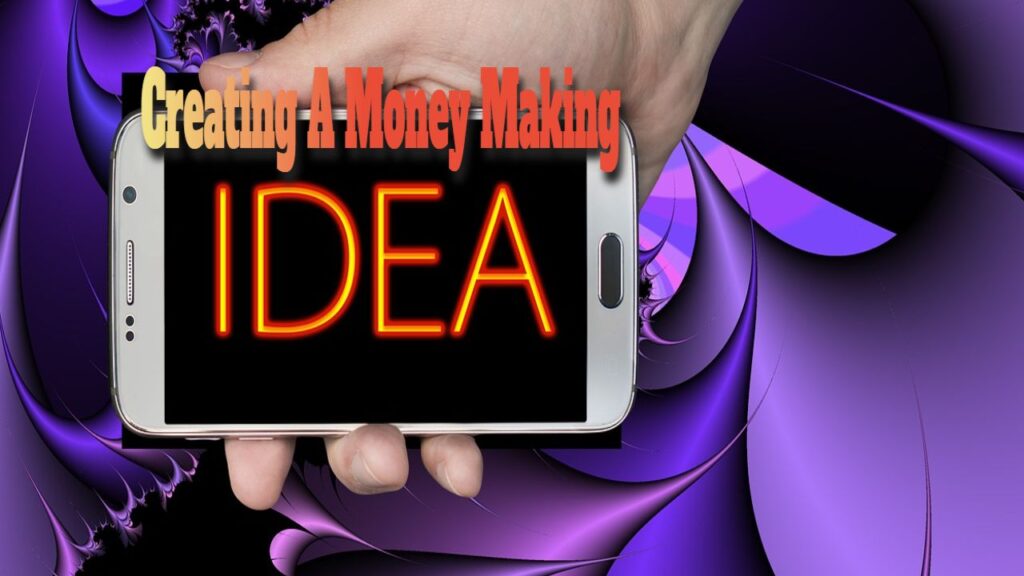Methods for Creating Money-Making Ideas
Methods for Creating Money-Making Ideas: Breakthrough inventions and inventors who pushed the boundaries of engineering and business have impacted our planet and today's culture. Some did it for great causes, such as science, war, or religion.
Others were only looking to make quick cash. Whatever the motivation, there is no denying that invention is vital to all advancement. And, as you are probably aware, need is the mother of all inventions.
The holy grail of creation is invention. Famous inventors and their fresh ideas are revered in our society, and many of us desire to be like them.
If you've had a creative streak, you've probably considered creating an invention. It's challenging to figure out how to put together something that has never been made.
No printed instruction manual describes how to do it. However, inventing has a long history, and we have learnt over time that there are some strategies to get yourself into that creative mood.
Here are seven ways to innovate and come up with new money-making ideas.
IMPROVE YOUR ABILITY TO RELAX AND MEDITATE.
Eureka! When Archimedes stepped out of the bathtub, he observed that water displacement was equivalent to the volume of his body in water. This thought appeared out of nowhere. But what he did may have triggered this sudden spurt of inventiveness.
A bath or shower, according to various studies, stimulates creative thinking. In a speech about work performance, Scott Barry Kaufman stated:
“The shower's quiet, isolated, judgment-free environment can inspire creative thinking if you let your mind wander and help people be more open to their inner streams of consciousness and daydreams.”
This method can also be used for active meditation. When you can stop thinking, the constant stream of consciousness has the opportunity to express itself in various ways. This is a recurring theme in the field of invention.
CONSIDER WHAT YOU DON'T LIKE ABOUT THE WORLD.
Before she begins developing or inventing, Miki Agrawal, a social entrepreneur, asks herself a simple question: “What's wrong with my world?”
She owns and runs several social companies. This question sparked her desire to establish a global sanitation empire. On the subject of motivation, she stated:
“What inspires us is that if you close your eyes, you can say: With every product I sell, I'm helping someone who desperately needs something like this or a solution to their problem, like the world sanitation crisis.”
Such motivation aids in the discovery of hidden concepts within us and their transformation into reality. This motivation is also what turns a concept into a profitable company.
EXPAND AN EXISTING SYSTEM TO CREATE YOUR OWN
Many individuals don't seem to understand the oft-misquoted adage:
“Great artists, rob. Good artists imitate.”
Consider how many creative people build on those who came before them to create a more comprehensive work of art, system, or whatever. That is the essence of the quote as well as the concept. Those who extend and personalise it borrow these concepts in the most basic way.
One such inventor was Luca Pacioli, a Renaissance figure now regarded as one of the most famous accountants. In the old Venetian days, he invented the double-entry bookkeeping method known as alla veneziana some hundred years before his birth. Pacioli did not create the system, but he popularised it to the point where we now use it.
In 1494, Pacioli released a mathematical book. The concept of double-entry bookkeeping has 27 pages in this book. Pacioli is thoroughly refined and personalised this concept. He was also confident of the invention's economic significance. At one time, he stated:
“If you are not a good accountant, you will grope your way forward like a blind man and risk incurring significant losses.”
PERCEPTIVE OBSERVATION
A creative mentality permits you to see things in new ways. The capacity to remain stationary and watch things is critical but sometimes ignored. Good observing abilities aid in learning, remembering, and expanding your immediate surroundings.
This ability is necessary when attempting to design new inventions.
When establishing a new business, you usually rack your brain for a fresh concept, improve something, or notice a trend. The challenge is to pay attention to what you're looking for.
This observational talent is helpful whether you're attempting to examine a set of facts or simply strolling about town. To be a creative thinker, you must observe what is happening without being distracted by a million other filters in your thoughts.
FIGHTING EXISTING PERSPECTIVES AND TRENDS
Some Stanford researchers got a letter from the US government in the early days of the Internet threatening to reveal their work on public-key cryptography. The technology that, one day, would safeguard our email transfers, allow online shopping, and ultimately construct the functioning Internet as we know it today.
The pioneering work of Whitfield Diffie and Martin Hellman, known as the Diffie-Hellman theory and eventually gave rise to RSA encryption technology, was initially concealed by the government.
Admiral Bobby Ray Inman led the agency in question. He considered cryptography as little more than a weapon for espionage. He explained his action against the two researchers by stating that he feared this material would aid opponents in future conflicts in encrypting their messages so that the US could not decrypt them. He became regressive as a result of his ignorance. Researchers, on the other hand, focused on the future.
To make an impact, you must be the evolutionary outlaw who periodically opposes accepted wisdom. That is the only way to advance.
ACCEPT BAD OR UNWORKABLE IDEAS.
“If you think outside the box, dream big, and commit to making it happen, any notion may be a terrific idea.” – Richard Branson, Virgin Group's CEO and founder.
Save time being hard on yourself or ignoring your ideas if you're in the thick of a messy creative process. Develop each concept to its full potential. It's possible that a groundbreaking innovation is just under your nose. Anything is conceivable at this point. Only toss out an idea once it has been wholly developed or tested. What you consider a terrible concept could be the seed of a viable, good idea.
No matter how ridiculous, the number of wacky ideas you can come up with is limitless. There are numerous options available here.
CONDUCT OBJECTIVE-FREE BRAINSTORMING SESSIONS.
In his 1953 book Applied Imagination: Principles and Practices of Creative Thinking, Alex Osborn gave an intriguing outlook on brainstorming phases. In a brainstorming session, he broke out the necessary processes that lead to innovation or other creative activities.
Orientation
Preparation
Analysis
Hypothesis
Incubation
Synthesis
Review
Identify the problem first, then collect data. The data obtained is then analysed and evaluated. After that, you create a hypothesis and invite people to test and explain it. Finally, you put everything together before evaluating whether the plan is sound.
Any criticism will be withheld until the notion has been fully explored. This is an open and free zone where you can think about whatever you want without fear of being criticised.
The post Methods for Creating Money-Making Ideas appeared first on https://gqcentral.co.uk
















